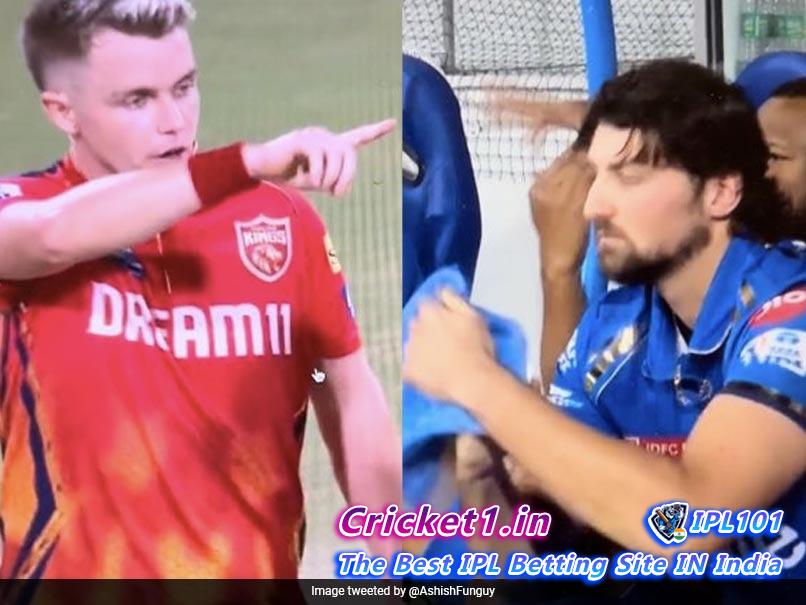
In a dramatic turn of events during the recent IPL face-off, the Mumbai Indians clinched a nail-biting 9-run victory over Punjab Kings. However, the win is now overshadowed by a mounting controversy involving alleged “DRS cheating” by the Mumbai Indians team. As the dust settles, a viral video has made rounds on social media, sparking outrage and accusations against the team led by Hardik Pandya.
The closely contested match featured stellar performances, with Jasprit Bumrah leading the Mumbai Indians with his exceptional bowling skills. Conversely, Ashutosh Sharma and Shashank Singh injected life into the game with their vigorous batting for Punjab Kings. Despite the commendable on-field displays, the match’s aftermath has been marred by the contentious use of the Decision Review System (DRS) by the Mumbai Indians.
Captured in the now-viral footage, Mumbai Indians’ player Tim David can be seen signaling for a DRS review shortly after a replay was shown on the stadium screens. Ignoring protests from Punjab Kings’ stand-in captain Sam Curran, who was visibly upset with the sequence of actions, the on-field umpire proceeded with the review process, which eventually ruled a delivery as a wide, much to the dismay of spectators and fans. The episode has lit up social media platforms, with the video being shared widely, accompanied by allegations of unfair play.
The posted video outlines a detailed timeline of the incident, beginning with the umpire’s initial decision, followed by the replay view and the subsequent contested gestures for a DRS call. Sam Curran’s protests are also highlighted, but to no avail, as the umpire consulted the third umpire without addressing Curran’s concerns, culminating in a decision that favored Mumbai Indians.
This incident has caused a stir among cricket enthusiasts and experts alike. Former players and commentators have chimed in, expressing disbelief and concern over the integrity of the umpiring process. Notably, commentator Murali Kartik and former Australian cricketer Tom Moody voiced their perplexity and dissatisfaction with the current state of affairs in umpiring. Moody took to social media to advocate for the introduction of specialist third umpires, highlighting the need for a revamp in the officiating dimension of the game.
Moody tweeted, “It’s time we considered having specialist 3rd umpires, too many questionable decisions being made. Some umpires are better suited on-field, the 3rd umpire requires experience and a certain skill set.” This sentiment reflects a growing consensus that specialist roles may enhance the decision-making accuracy in crucial game moments.
The controversy has not just stopped at public outcry and expert commentary; it poses serious questions about the standards of fairness and transparency in the IPL. Fans are left wondering about the potential implications for the reputation of the league and the faith in its adjudicating processes. As the debate rages on, the spotlight remains fixed on the IPL’s handling of such controversies, scrutinizing the balance between human judgment and technological aid in cricket.
As the IPL continues, this incident serves as a pivotal moment for the league’s administrators, potentially catalyzing changes in how technology-assisted decisions are integrated and monitored during matches. The resolution of this controversy will be closely watched, as it could set precedents for future matches not just in IPL, but in the cricketing world at large.

